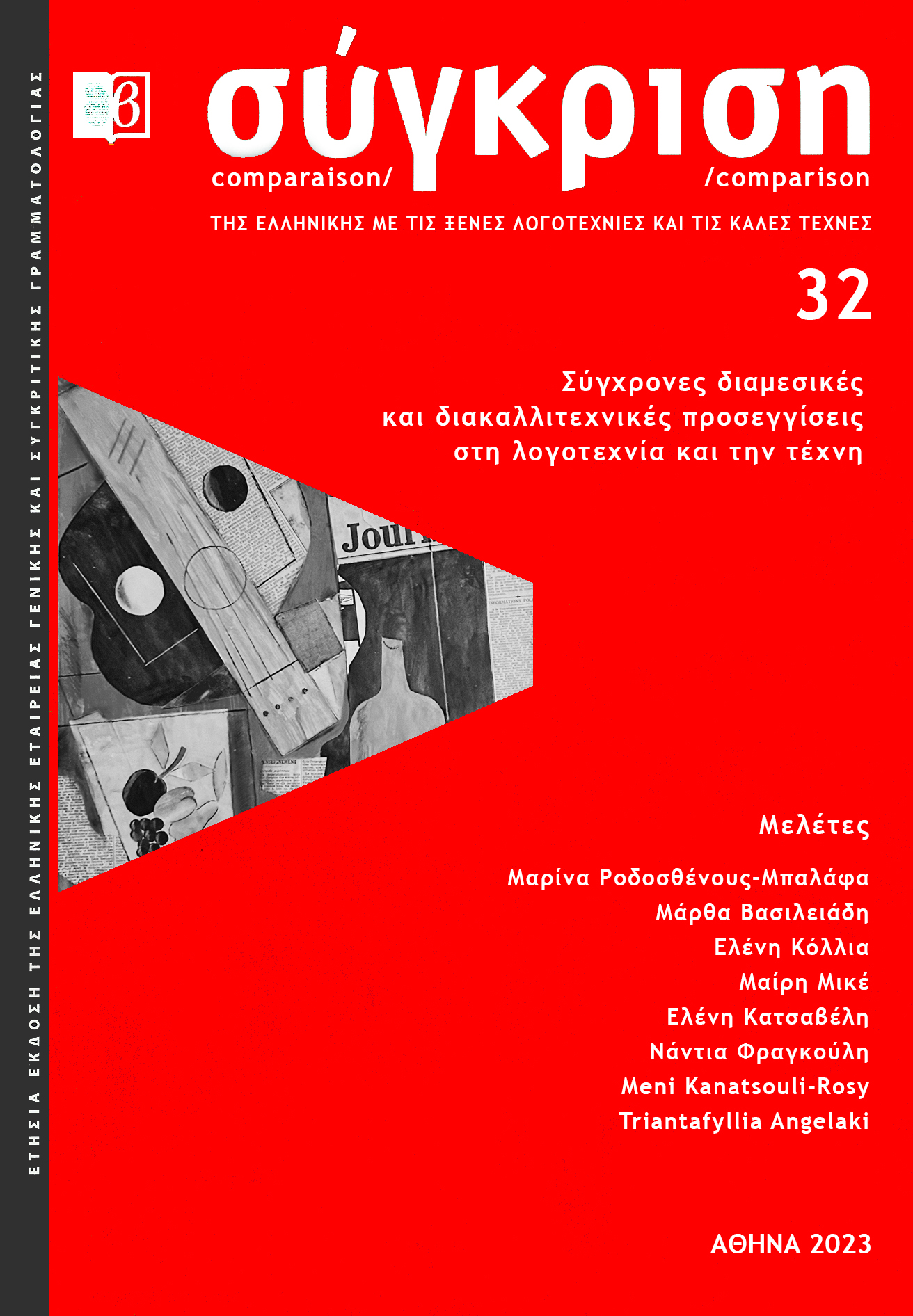Η περιπλάνηση των αισθητικών κατηγοριών μεταξύ Λόγου και Εικόνας. Το παράδειγμα της Stimmung
Abstract
The article raises methodological questions on the axis of analysis and hermeneutics between text and image. What happens if one perceives literature and painting as moving bodies, which touch each other, collide or exchange gifts? The paper proposes a conceptual scheme, which will be used both as a methodological tool and as an interpretation key for intermedial approaches. In this regard, a number of aesthetic categories is configured, which on the one hand derive from historical conceptual categories and on the other are getting aestheticized via the process of Wanderung, in order to be activated within complex intermedial relations. In this context the example of the category of Stimmung will be presented. Initially, Stimmung migrates as a nomadic figure among different epistemological fields and then it wonders as a flâneur between text and image, suggesting new crossings and hermeneutical paths.
Article Details
- How to Cite
-
Chachali, S. (2023). Η περιπλάνηση των αισθητικών κατηγοριών μεταξύ Λόγου και Εικόνας. Το παράδειγμα της Stimmung. Comparison, 32, 37–52. Retrieved from https://ejournals.epublishing.ekt.gr/index.php/sygkrisi/article/view/35741
- Issue
- Vol. 32 (2023)
- Section
- Articles

This work is licensed under a Creative Commons Attribution-NonCommercial-ShareAlike 4.0 International License.
Authors who publish with this journal agree to the following terms:
- Authors retain copyright and grant the journal right of first publication with the work simultaneously licensed under a Creative Commons Attribution Non-Commercial License that allows others to share the work with an acknowledgement of the work's authorship and initial publication in this journal.
- Authors are able to enter into separate, additional contractual arrangements for the non-exclusive distribution of the journal's published version of the work (e.g. post it to an institutional repository or publish it in a book), with an acknowledgement of its initial publication in this journal.
- Authors are permitted and encouraged to post their work online (preferably in institutional repositories or on their website) prior to and during the submission process, as it can lead to productive exchanges, as well as earlier and greater citation of published work (See The Effect of Open Access).



